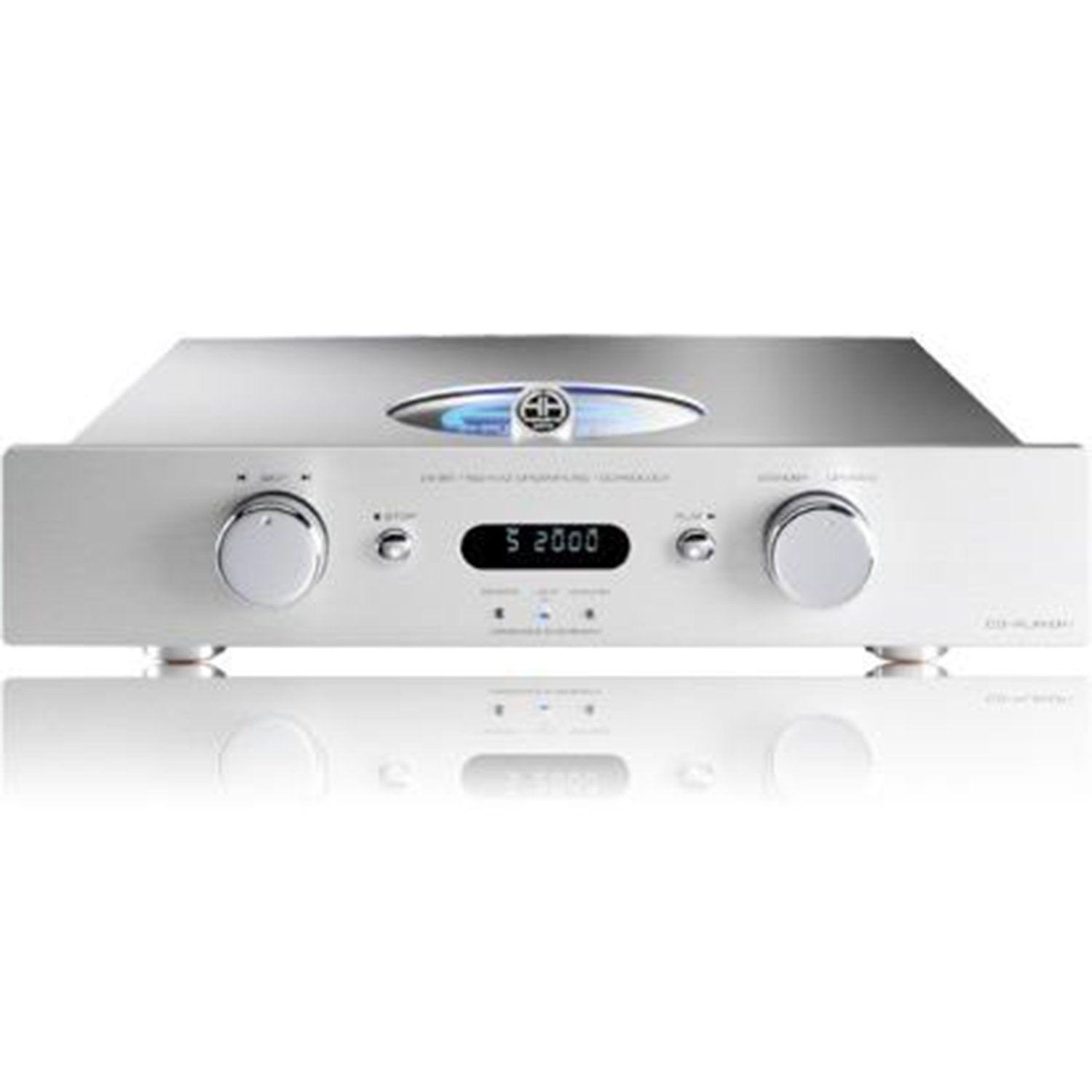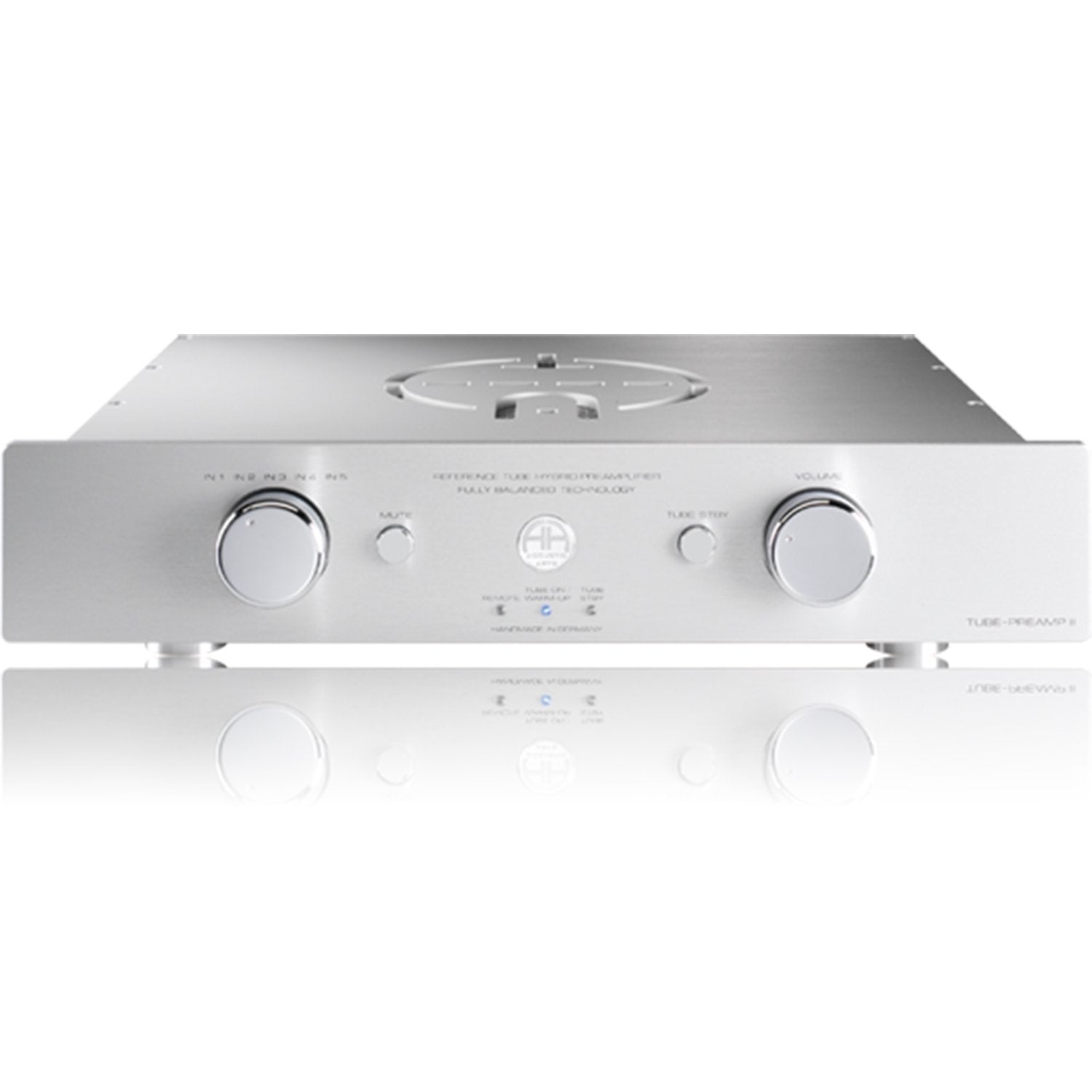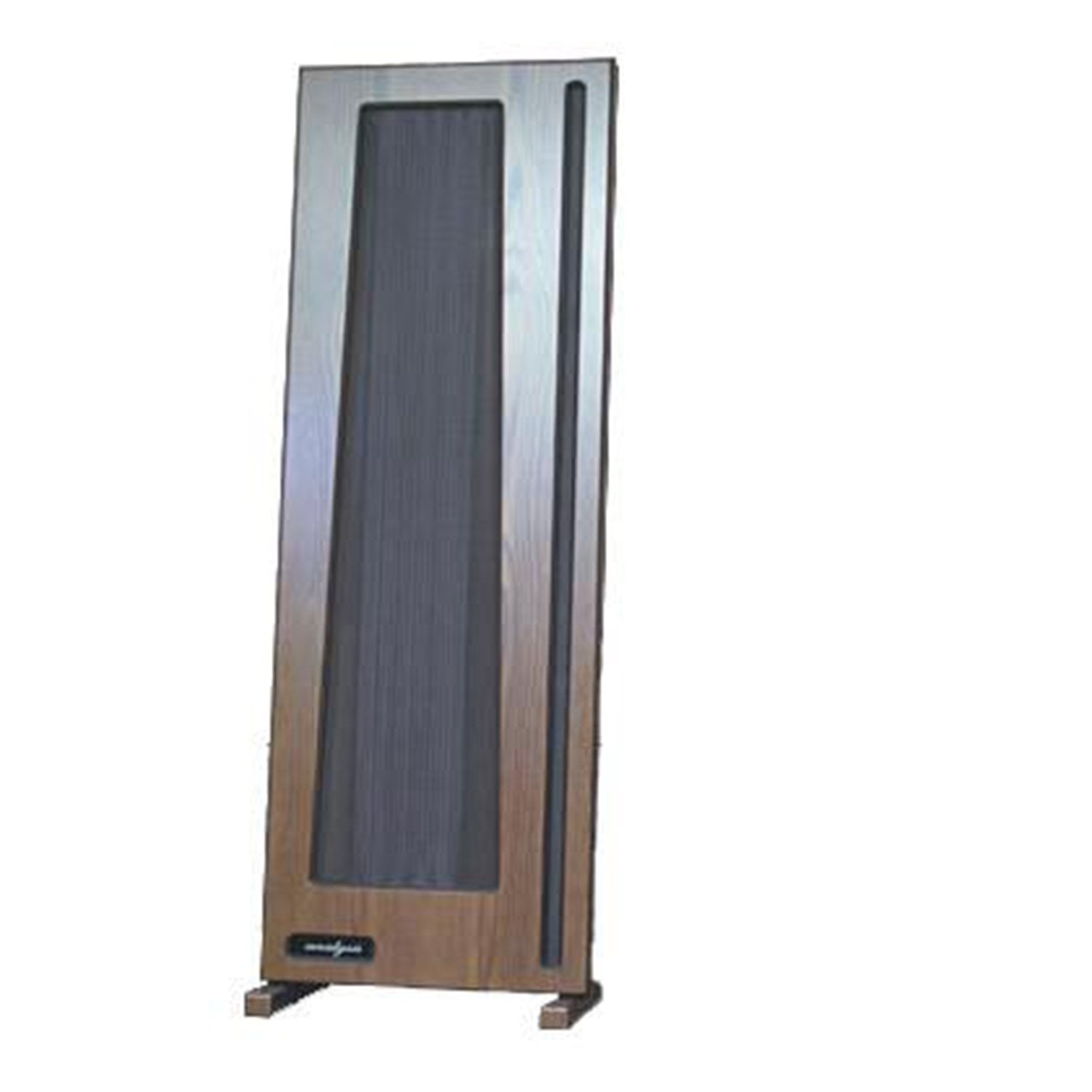Hybrid Digital Amplification
The M22 is using the latest nCore™ amplifier technology licensed from Hypex to provide a nearly ideal amplifier with distortion below measurement, ultra-high damping factor, and unconditional stability with any speaker. Tight, detailed sound with amazing control and transparency gets the best performance available. With nCore, Hypex has refined their UcD concept to new levels of perfection by improving the modulator for more accurate feedback subtraction and PWM generation. The all-discrete driver and output stage have also been improved for lower open-loop THD as well as lower idling losses, normally conflicting requirements with conventional IC driver circuitry. An added control loop incorporating an integrator with adaptive clipping enables 20dB more feedback to be used across the audio band because of its extremely low-phase shift resulting in a dramatic reduction in distortion across the audio band. This is added to UcD’s already amazing characteristics of load invariance and high current capability, common characteristics of great-sounding amplifiers.
Effortless Power
Employing the latest generation of digital PowerDrive™ the M22 offers a minimum of 250W per channel with amazing reserves of dynamic power at lower impedances. The M22 is capable of >300W dynamic power per channel even in 8 ohms, and >600W in 2 ohms. It can effortlessly power any loudspeaker to live performance levels with amazing efficiency and low power consumption. Control for PowerDrive is derived by sensing the average output power, applying a time constant, and then cleanly hard clipping the signal thus limiting it to the rated continuous clipping power over a sustained loading.
By controlling the power envelope maximum clean power is obtained for every operating condition.
Perfecting Performance
The output stage is only one of several circuits in the amplifier, and each must complement the other to obtain optimal performance. The amp is DC coupled throughout, from input to output, there is no capacitor in the forward signal path. Yet, it has a beneficial 12dB/octave roll-off below 2Hz. It does this using a unique circuit topology that is functionally a forward servo. It is however not a servo in the traditional sense as it does not measure DC at the output and send back a correction signal. Instead part of the input signal is fed to a side chain with a second order low-pass filter. The output of this is subtracted from the forward signal input to the second stage thus rejecting DC.
Clean and Dynamic
The performance of the entire signal path is critically dependent on the power supply; in this case a well regulated, but not too tight, custom switch mode design. This allows maximum dynamic power, very high current yet with very low distortion. Secondary supplies are individually regulated and decoupled at each opamp for lowest possible noise and maximum dynamic range.




